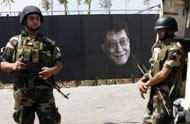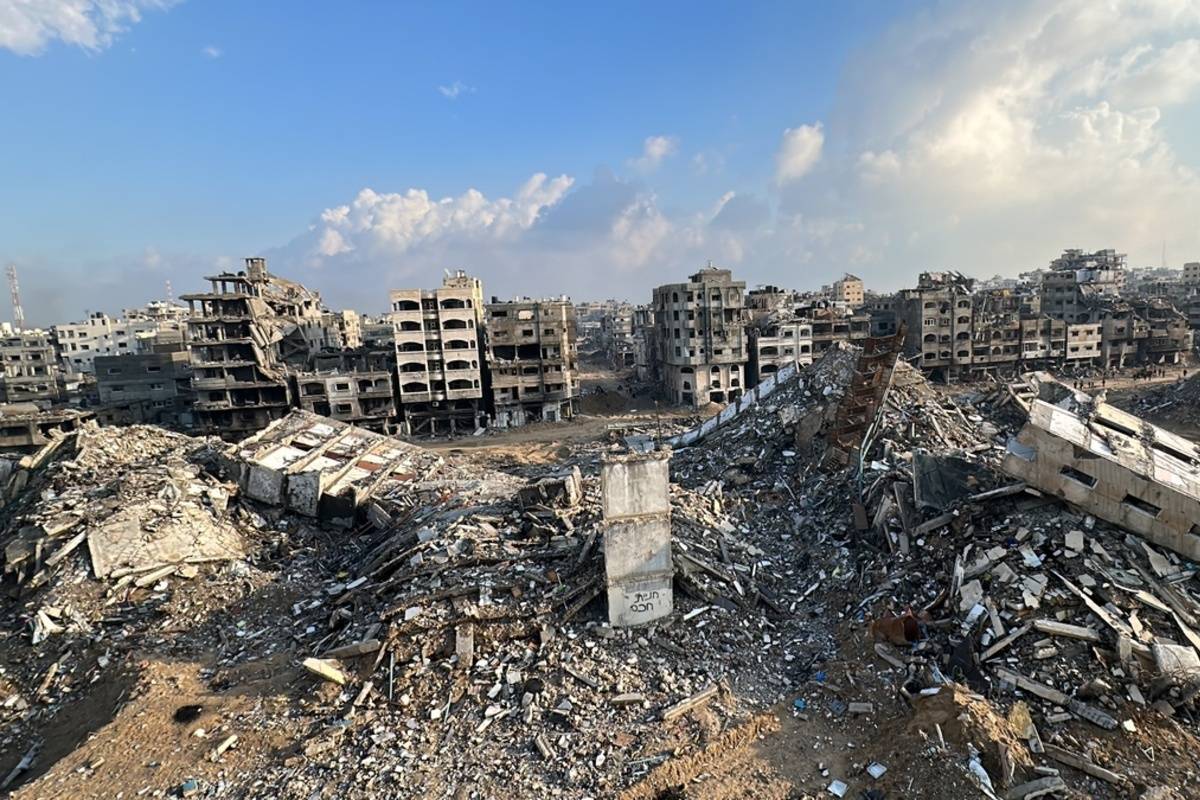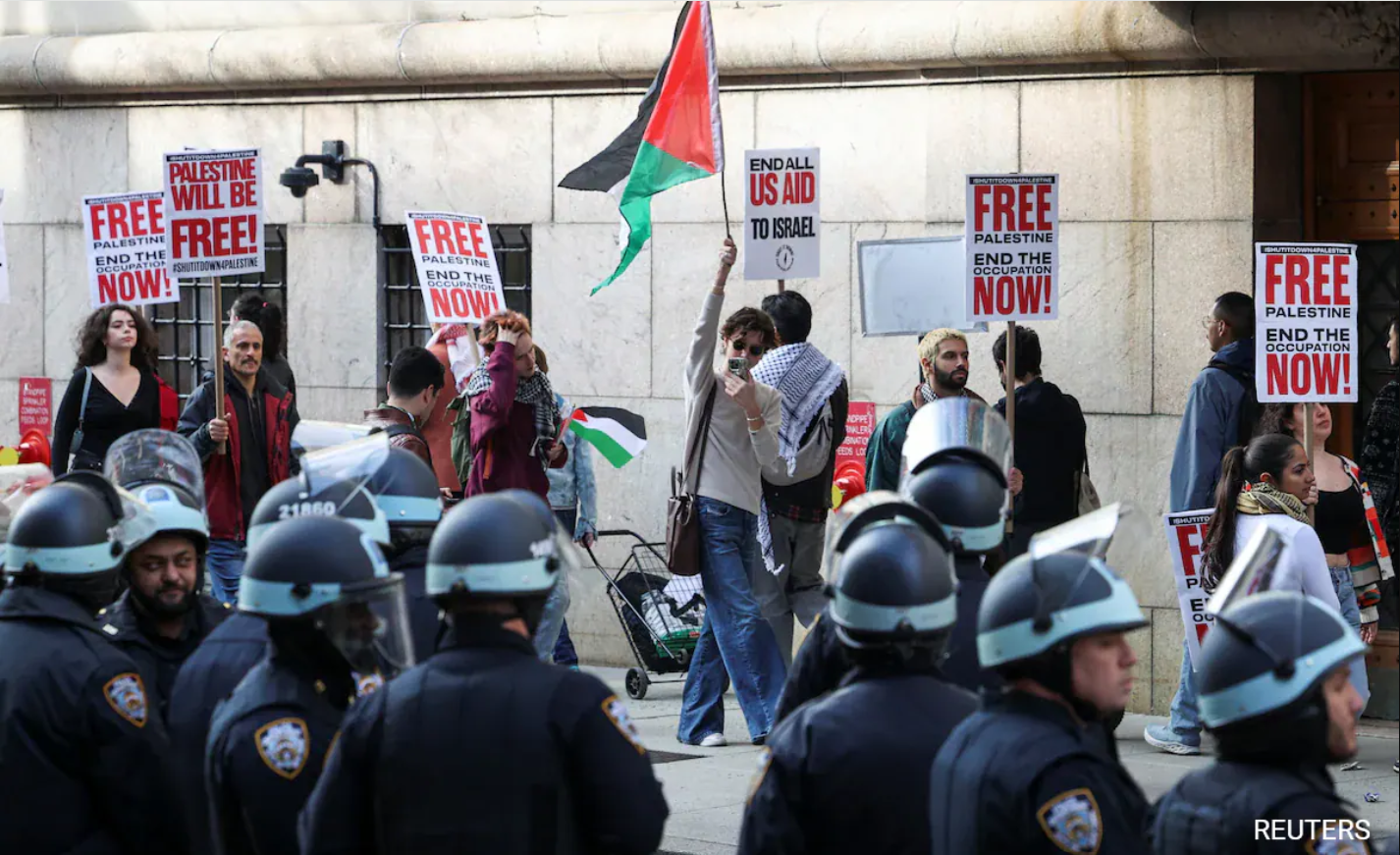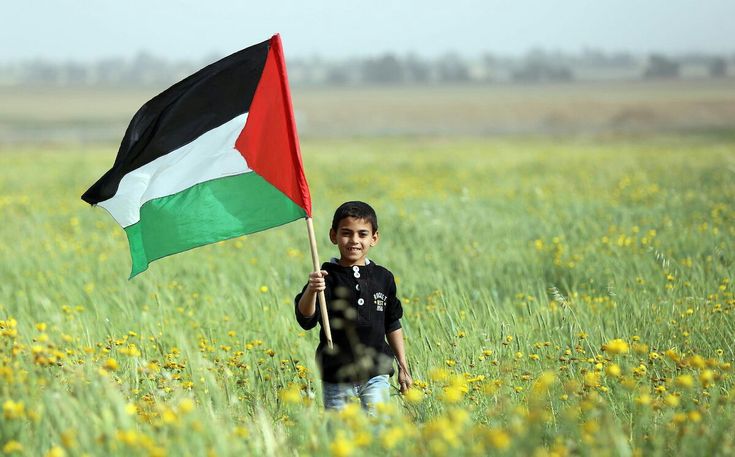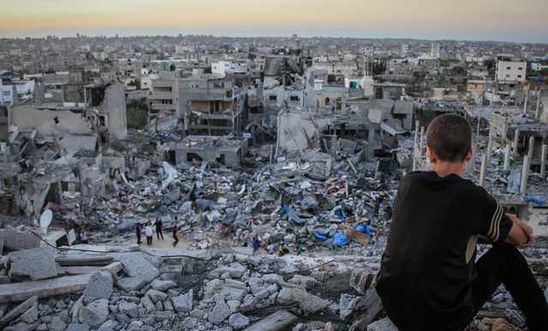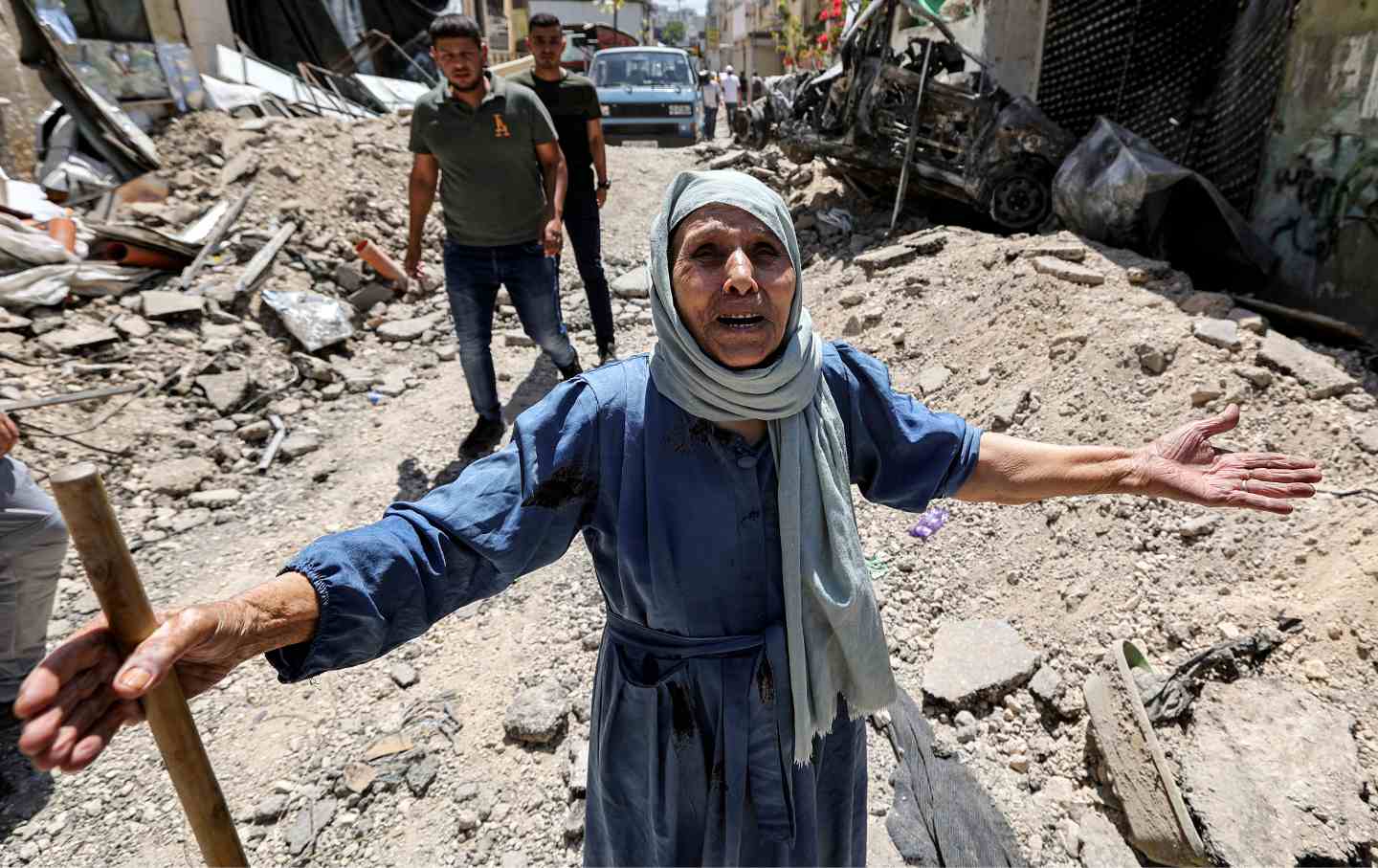Almost a week has passed since Palestine’s national poet was laid to rest on a Ramallah hilltop overlooking Jerusalem. Much has been written about Mahmoud Darwish, the eloquent bard whose poignant words have put thousands in tears. It seems only appropriate that I also say a few words in his honor.
From the throngs of people who joined in the funeral procession, it was clear that Darwish had won the status of poet laureate in Palestine, the literary equivalent of late President Yasser Arafat. For one, thousands of people walked several kilometers in silence alongside the military truck carrying Darwish’s flag-draped casket in the sweltering heat to the Ramallah Cultural Palace. Uniformed Palestinian guards rode along with Darwish in a dignified procession not often seen in Palestine’s streets, the wreaths of flowers placed around the coffin symbolic of the laurels offered to the poet in ancient Greece chosen to represent the nation.
Given Darwish’s years of offering, his final farewell could have been nothing less than dignified. Not to my surprise, it was also extremely moving. While waiting for the funeral procession to reach the Cultural Palace, I took a quick look at the dejected faces around me. One man stood quietly until he caught a glance at the oversized Palestinian flag and the black truck mounted with Palestinian guards approaching. He turned away, covered his face with his hands and wept. I could hear barely audible sobs coming from this man I did not know but who shared with me an intense sorrow over Darwish’s passing.
A woman, not far from where I stood was looking blankly at the sky, silent tears streaming down her face, her eyes swollen and red. Others were quietly muttering to themselves, perhaps a prayer for the dead or maybe reciting some of Darwish’s poetry to themselves in remembrance.
For once, Palestine was united, albeit in grief. If anything was heartwarming about this sad occasion it was this. It was also comforting to know that Darwish was the poet of all ages. There were men and women from the generation of exile, to which Darwish belonged. They understood firsthand the pain of being forced from their homes. “Absent, I come to the home of the absent,” one of Mahmoud Darwish’s poems reads. In the same crowd were young Palestinians, some still in their teens, who were born under the Israeli occupation of 1967, who were weaned on stories of exile and on Darwish’s poetry. “Mother” a poem written by Darwish while in an Israeli prison and later sung by Lebanese singer Marcel Khalifeh, is perhaps the most well-known song among Palestinians today. “I long for my mother’s bread/my mother’s coffee/her touch”.
As a small boy, Darwish fled his home of Al Birwa during the 1948 War only to sneak back into the country a year later. He was to find his village destroyed, a new Jewish community in its stead. He later spent 26 years in exile, in Paris and in the Arab world. Since then, the longing for his country, the injustice of exile and the vow never to forget the Palestine of his childhood has remained a common theme.
Palestinians inside the country and those scattered throughout the world have been raised on the poems of Mahmoud Darwish, which guarantees that he will live on. Unlike most of us, who pass from this world with a handful of those who will remember us, Darwish is loved and will be missed by hundreds of thousands. While he is gone from this earth, his poetry has always been and will always remain very much alive. It is etched in our collective consciousness and has played a role in shaping our own collective identity. At just 22, Darwish penned “Record, I am an Arab” which became a symbol of resistance to the Israeli occupation and to the exile which he had personally experienced. “Record, I am an Arab/ I have a name without a title/Patient in a country where people are enraged/I do not hate people/ nor do I encroach/but if I become hungry/the usurper’s flesh will be my food/beware…beware/of my hunger/and my anger.
Darwish’s clarity of mind and thought is something Palestine will sorely miss. For his generation, the refugee right of return was non-negotiable, exile a personal and unforgettable wound. With Darwish’s death along with prominent others of this generation such as Edward Said and Ibrahim Abu Lughoud, the fear is that this unfaltering and solid stance may be in danger. To some younger Palestinians for whom Palestinian exile and the Nakba of 1948 is represented merely by the stories of their elders and confined to history books, the right of return is not nearly as sacred and is such, easier to forsake. It is precisely for this reason that Mahmoud Darwish’s poetry which offers that window into a pain only felt by those who have experienced it, should be drilled into the minds of those who wish to forget or prefer to relegate this sacred right to the many concessions the Palestinian leadership had to make in the name of peace.
Mahmoud Darwish was not the most loved and cherished Palestinian poet merely because he was a skilled orator or wove fancy words into poetic bars. He became a symbol of unfailing determination, of the love for our country and of the collective consciousness of an entire people. Darwish touched our hearts precisely because his words reflected what we have always felt but could not possibly have expressed so beautifully. For him and for our country’s loss, our tears flowed. Quickly after, we recomposed ourselves and dried our eyes because we realized that Mahmoud Darwish will live on through the innumerous gifts he has bestowed on us. He is our beloved poet and Palestine’s cherished son.



